Le Monnier, Discours d'un negre marron, 1777.
- Regular price
- €2.400,00 EUR
- Regular price
-
- Sale price
- €2.400,00 EUR
- Unit price
- per
"May the race of blacks multiply and enlighten themselves!"
[L'Abbé Guillaume-Antoine Le Monnier (1723-1797)].
Discours d'un negre marron, qui a été repris, & qui va subir le dernier supplice.
[In:]
Fêtes des bonnes-gens de Canon et des Rosieres de Briquebec.
Avignon, Et se vend au profit des Rosières de Briquebec. Paris, l'abbé Le Monnier, Prault, frères Jombert & Cellot, Veuve Vallat-la-Chapelle, 1777.
2 works 1 volume. 8°. VIII, 208; 7, [1] pp.
With a frontispiece designed and etched by Jean Michel Moreau (1741-1814), dated 1777.
Contemporary mottled calf, gold-tooled smooth spine, red edges, marbled endpapers. With a handwritten letter on two postcards showing the Chateau de Canon, by J. de Mézerac, who became owner of the chateau in 1970 and who's family still inhabit it.
First edition of an early and remarkable French lyrical poem against racism and slavery. This Discours is bibliographically separate with its own quire numbering, but is always included in the Fêtes des Bonnes-Gens, a compilation of texts on good virtues and neighbourly love that was published at the occasion of a festival called the “Fête des gonnes-gens” (Feast of Good People) in Normandy, France. This type of celebration was first held in in February 1775 in the Mézidon-Canon district. Each yearly feast saw the election of a Good girl, a Good mother, a Good old man and a Good head of the family, who were given an engraved silver token. Subsequently, several localities imitated Canon's festivities. The present book was published on the occasion of the celebration of the Rosière of the chateau in Briquebec.
All texts in the book are morally elevated and mundane as can be expected, but it ends curiously with the Discours d'un negre marron qui a ete repris, & qui va subir le dernier supplice (Speech of a captured black man who will soon be tortured). Though this is certainly about good virtue, it falls completely out of tone with the rest of the book. This vibrant plea against slavery and a call for humanity towards black people is set up as a fictional speech by an enslaved black man to his white captors. He accuses the Europeans of their sinful oppression and threatens them with revenge while he is about to be executed. Le Monnier argues that “if we did not know how capable black people are of zeal, attachment and tender sentiments, when they are treated as men, we would cite several honorable treatises for them.” This early anti-slavery poem testifies to a developing sensitivity to the subject of slavery that is generally associated with the famous discourse in Raynal's Histoire des deux Indes, first published in 1770.
Condition: minor wear to spine, bookplate on front pastedown, contemporary owner's inscription in ink on title and back free endpaper, a couple minor spots. Otherwise in very good condition.
Reference: Cohen-de Ricci, 621. Hogg, The African Slave Trade and Its Suppression, no. 4178.
Literature: Rachel Danon, Les Voix du marronnage dans la littérature française du XVIIIe siècle, Paris : Classiques Garnier, 2015.
Couldn't load pickup availability
Share
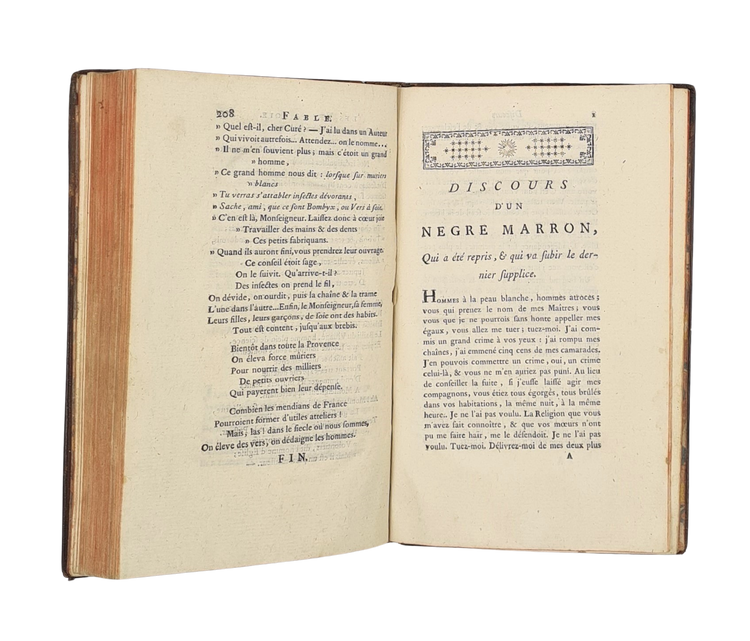
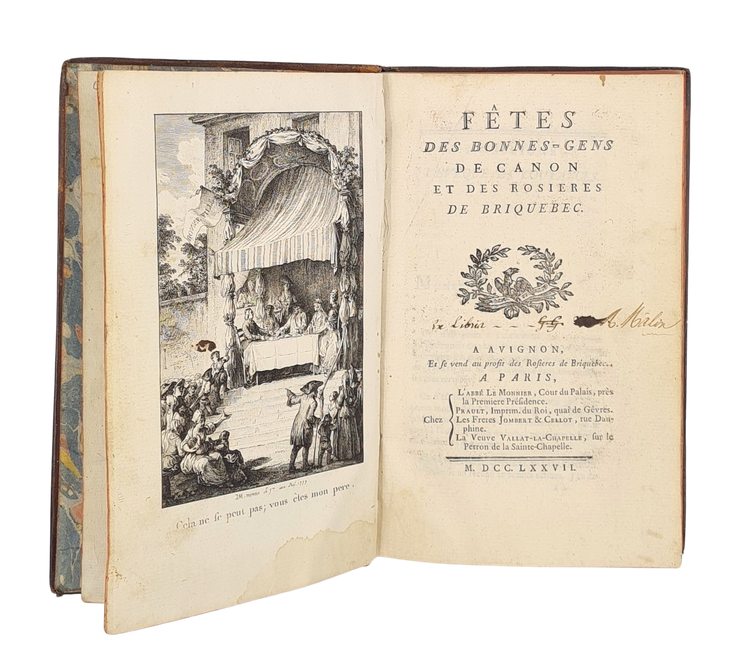
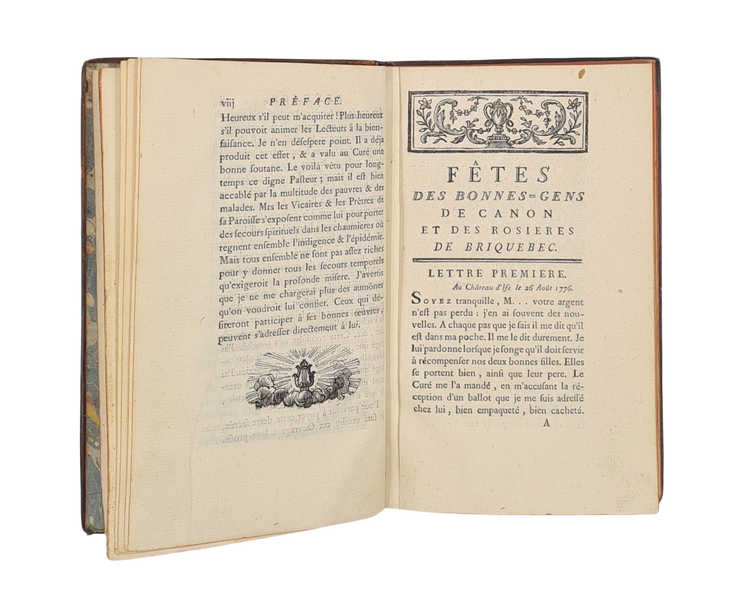
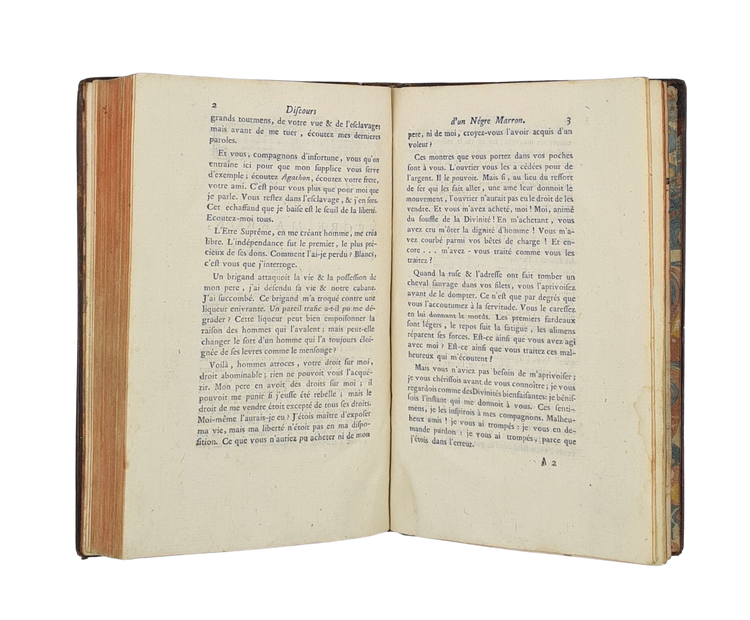

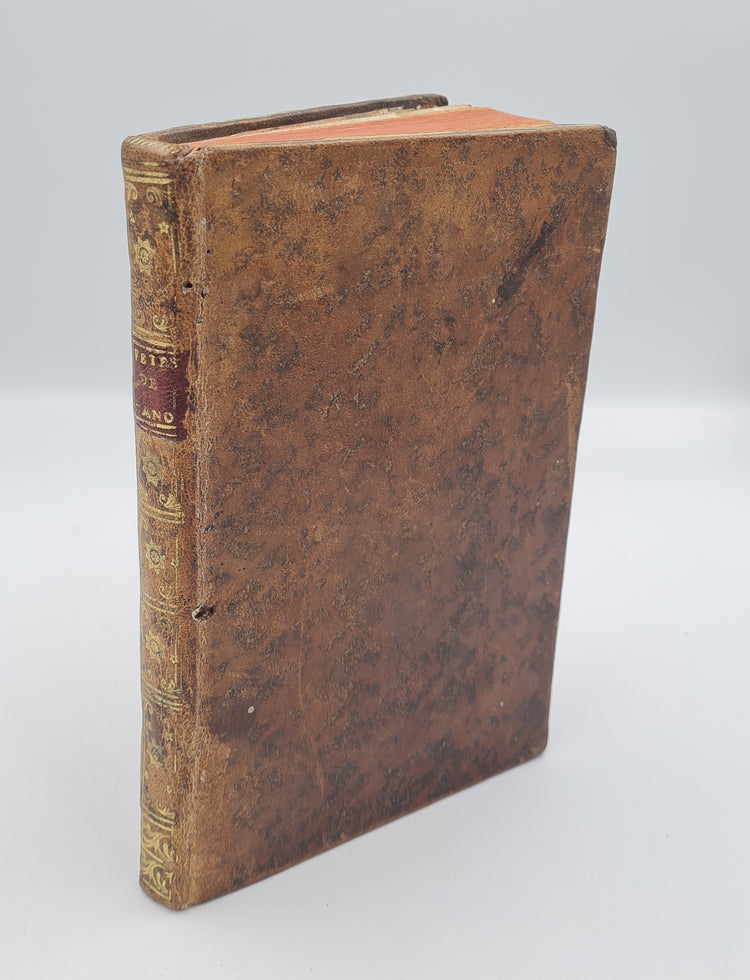
Contact
Email: hugo@artemrarebooks.com
Phone: +31651042297
Visit us on appointment at:
Former US Embassy
Lange Voorhout 102
2514EJ
The Hague (The Netherlands)
Shipping address:
Nannie van Wehlstraat 51
2548MN
The Hague
The Netherlands






